Abstract:
The impact of social media on teens’ mental health and development raises the need for educational interventions that equip them with the knowledge and skills to cope wit...Show MoreMetadata
Abstract:
The impact of social media on teens’ mental health and development raises the need for educational interventions that equip them with the knowledge and skills to cope with dangerous situations. In spite of the growing effort to expand social media literacy among youngsters, social media interventions still rely on conventional methods that tend to prioritize cognitive skills while overlooking important socio-emotional competencies. To bridge this gap and offer innovative solutions to social media education, this article presents the narrative scripts (NS) approach implemented in a learning technology environment that integrates pedagogical strategies of authentic learning, narratives, and scripted collaborative learning within a simulated educational social media platform. A longitudinal study with 370 high school students in urban schools in Barcelona (Spain) was designed to assess NS in an intervention to foster the development of social media self-protection skills. The findings demonstrated that NS supported the development of social media self-protection skills, while the students expressed positive perceptions of their overall learning experience. The intervention notably enhanced the socio-emotional competencies of responsible decision-making, self-awareness, and social awareness. This research makes a valuable contribution to the design and development of technology aimed at facilitating authentic learning experiences for social media education, with a specific focus on interventions targeting socio-emotional competencies.
Published in: IEEE Transactions on Learning Technologies ( Volume: 17)
Funding Agency:
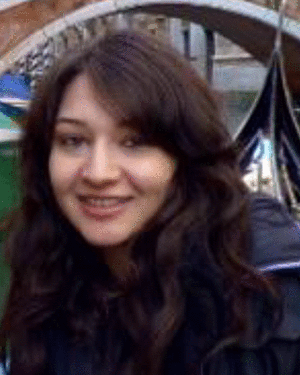
TIDE, ICT Department, Universitat Pompeu Fabra, Barcelona, Spain
Emily Theophilou received the Ph.D. degree in information and communication technologies from the Universitat Pompeu Fabra (UPF), Barcelona, Spain, in 2024.
She is currently a Postdoctoral Researcher with the research group of interactive and distributed technologies for education (TIDE). Her research interests include educational technologies, CSCL, and socioemotional aspects.
Emily Theophilou received the Ph.D. degree in information and communication technologies from the Universitat Pompeu Fabra (UPF), Barcelona, Spain, in 2024.
She is currently a Postdoctoral Researcher with the research group of interactive and distributed technologies for education (TIDE). Her research interests include educational technologies, CSCL, and socioemotional aspects.View more
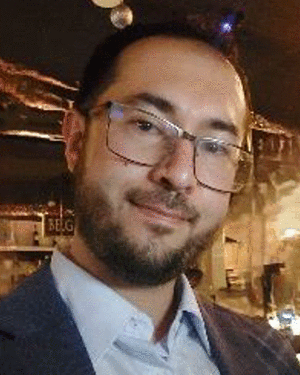
TIDE, ICT Department, Universitat Pompeu Fabra, Barcelona, Spain
René Lobo-Quintero received the Ph.D. degree in information and communication technologies from the Universitat Pompeu Fabra (UPF), Barcelona, Spain, in 2023.
He is currently a Teacher and Researcher with Fundación Universitaria Konrad Lorenz, Bogota, Colombia. His research interests include computer-supported collaborative learning and student engagement.
René Lobo-Quintero received the Ph.D. degree in information and communication technologies from the Universitat Pompeu Fabra (UPF), Barcelona, Spain, in 2023.
He is currently a Teacher and Researcher with Fundación Universitaria Konrad Lorenz, Bogota, Colombia. His research interests include computer-supported collaborative learning and student engagement.View more
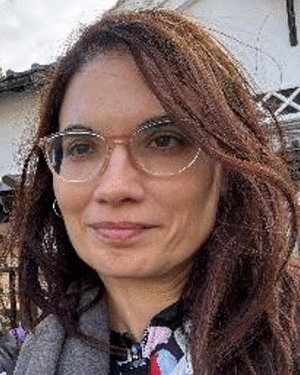
TIDE, ICT Department, Universitat Pompeu Fabra, Barcelona, Spain
Davinia Hernández-Leo received the Ph.D. degree in telecommunication engineering from the University of Valladolid, Valladolid, Spain, in 2007.
She is currently a Full Professor and Serra Húnter Fellow with the Department of Engineering, Universitat Pompeu Fabra, Barcelona, Spain, and the Head of the TIDE Research Lab. Her research focuses on learning and collaboration technologies, with emphasis in learning design technol...Show More
Davinia Hernández-Leo received the Ph.D. degree in telecommunication engineering from the University of Valladolid, Valladolid, Spain, in 2007.
She is currently a Full Professor and Serra Húnter Fellow with the Department of Engineering, Universitat Pompeu Fabra, Barcelona, Spain, and the Head of the TIDE Research Lab. Her research focuses on learning and collaboration technologies, with emphasis in learning design technol...View more
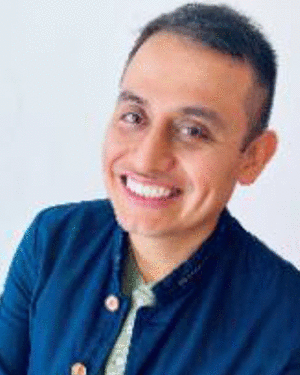
TIDE, ICT Department, Universitat Pompeu Fabra, Barcelona, Spain
Roberto Sánchez-Reina received the Ph.D. degree in communication from Universitat Pompeu Fabra, Barcelona, Spain, in 2020.
He is currently a Communication Specialist trained in media and social studies. His research focuses on the psychosocial effects of media, learning technologies, and digital literacy.
Roberto Sánchez-Reina received the Ph.D. degree in communication from Universitat Pompeu Fabra, Barcelona, Spain, in 2020.
He is currently a Communication Specialist trained in media and social studies. His research focuses on the psychosocial effects of media, learning technologies, and digital literacy.View more
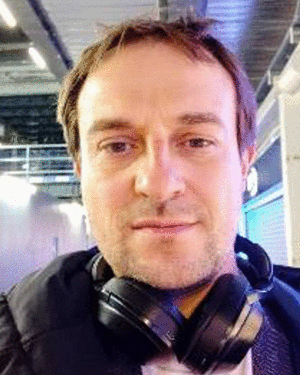
Department of Psychology, Università degli Studi di Milano Bicocca, Milan, Italy
Dimitri Ognibene received the Ph.D. degree in robotics from the University of Genoa, Genoa, Italy, in 2009.
He is currently an Associate Professor with the University of Milan-Bicocca, Milan, Italy, focusing on how social agents with limited sensory and computational resources adapt to complex environments. His research interests include AI's societal impacts, digital literacy, and combating online misinformation.
Dimitri Ognibene received the Ph.D. degree in robotics from the University of Genoa, Genoa, Italy, in 2009.
He is currently an Associate Professor with the University of Milan-Bicocca, Milan, Italy, focusing on how social agents with limited sensory and computational resources adapt to complex environments. His research interests include AI's societal impacts, digital literacy, and combating online misinformation.View more

TIDE, ICT Department, Universitat Pompeu Fabra, Barcelona, Spain
Emily Theophilou received the Ph.D. degree in information and communication technologies from the Universitat Pompeu Fabra (UPF), Barcelona, Spain, in 2024.
She is currently a Postdoctoral Researcher with the research group of interactive and distributed technologies for education (TIDE). Her research interests include educational technologies, CSCL, and socioemotional aspects.
Emily Theophilou received the Ph.D. degree in information and communication technologies from the Universitat Pompeu Fabra (UPF), Barcelona, Spain, in 2024.
She is currently a Postdoctoral Researcher with the research group of interactive and distributed technologies for education (TIDE). Her research interests include educational technologies, CSCL, and socioemotional aspects.View more

TIDE, ICT Department, Universitat Pompeu Fabra, Barcelona, Spain
René Lobo-Quintero received the Ph.D. degree in information and communication technologies from the Universitat Pompeu Fabra (UPF), Barcelona, Spain, in 2023.
He is currently a Teacher and Researcher with Fundación Universitaria Konrad Lorenz, Bogota, Colombia. His research interests include computer-supported collaborative learning and student engagement.
René Lobo-Quintero received the Ph.D. degree in information and communication technologies from the Universitat Pompeu Fabra (UPF), Barcelona, Spain, in 2023.
He is currently a Teacher and Researcher with Fundación Universitaria Konrad Lorenz, Bogota, Colombia. His research interests include computer-supported collaborative learning and student engagement.View more

TIDE, ICT Department, Universitat Pompeu Fabra, Barcelona, Spain
Davinia Hernández-Leo received the Ph.D. degree in telecommunication engineering from the University of Valladolid, Valladolid, Spain, in 2007.
She is currently a Full Professor and Serra Húnter Fellow with the Department of Engineering, Universitat Pompeu Fabra, Barcelona, Spain, and the Head of the TIDE Research Lab. Her research focuses on learning and collaboration technologies, with emphasis in learning design technology, CSCL, community platforms, AI in education, and learning analytics.
Davinia Hernández-Leo received the Ph.D. degree in telecommunication engineering from the University of Valladolid, Valladolid, Spain, in 2007.
She is currently a Full Professor and Serra Húnter Fellow with the Department of Engineering, Universitat Pompeu Fabra, Barcelona, Spain, and the Head of the TIDE Research Lab. Her research focuses on learning and collaboration technologies, with emphasis in learning design technology, CSCL, community platforms, AI in education, and learning analytics.View more

TIDE, ICT Department, Universitat Pompeu Fabra, Barcelona, Spain
Roberto Sánchez-Reina received the Ph.D. degree in communication from Universitat Pompeu Fabra, Barcelona, Spain, in 2020.
He is currently a Communication Specialist trained in media and social studies. His research focuses on the psychosocial effects of media, learning technologies, and digital literacy.
Roberto Sánchez-Reina received the Ph.D. degree in communication from Universitat Pompeu Fabra, Barcelona, Spain, in 2020.
He is currently a Communication Specialist trained in media and social studies. His research focuses on the psychosocial effects of media, learning technologies, and digital literacy.View more

Department of Psychology, Università degli Studi di Milano Bicocca, Milan, Italy
Dimitri Ognibene received the Ph.D. degree in robotics from the University of Genoa, Genoa, Italy, in 2009.
He is currently an Associate Professor with the University of Milan-Bicocca, Milan, Italy, focusing on how social agents with limited sensory and computational resources adapt to complex environments. His research interests include AI's societal impacts, digital literacy, and combating online misinformation.
Dimitri Ognibene received the Ph.D. degree in robotics from the University of Genoa, Genoa, Italy, in 2009.
He is currently an Associate Professor with the University of Milan-Bicocca, Milan, Italy, focusing on how social agents with limited sensory and computational resources adapt to complex environments. His research interests include AI's societal impacts, digital literacy, and combating online misinformation.View more

